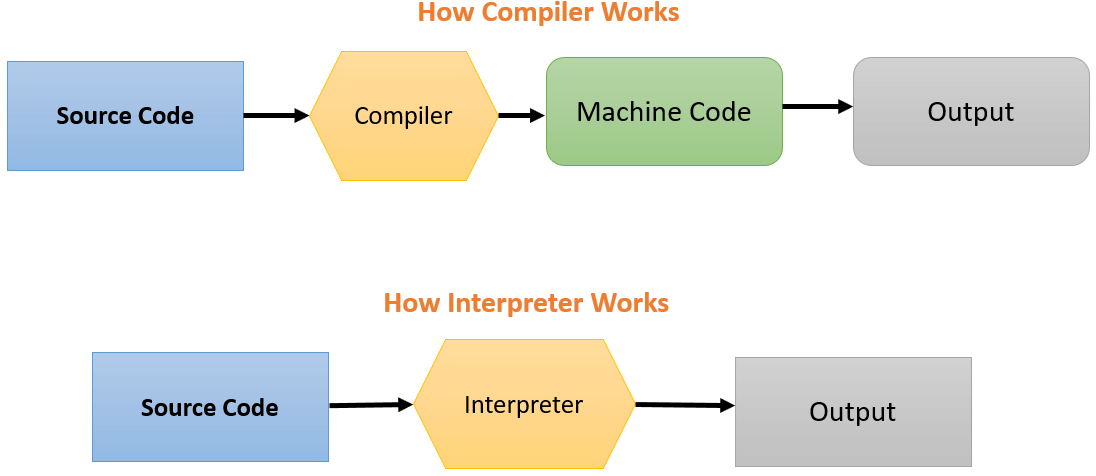Compiling and Execution
Once the program has been written it needs to be converted into machine language (0 and 1), before the machine can execute it. This conversion is done by the compiler. Compiling the program makes an EXE file (Executable file), if we copy this file to another machine we can execute it without recompiling it.
Compiler and Interpreter
What is the Compiler?
A Compiler is a computer program that translates code written in a high-level programming language into machine code usually binary code 0 and 1. The computer processes the machine code to perform the corresponding tasks.
What is the Interpreter?
An Interpreter is a computer program, which translates each high-level program statement into the machine code. This includes source code, pre-compiled code, and scripts. Both compiler and interpreters do the same job which is converting higher level programming language to machine code. However, a compiler will convert the code into machine code (create an EXE) before program run. Interpreters convert code into machine code when the program is run.

C Language Feedback, Questions, Suggestions, Discussion.
Ad:

